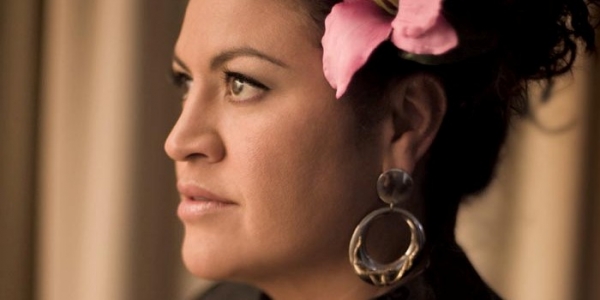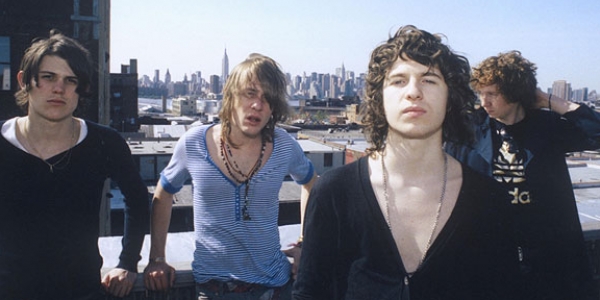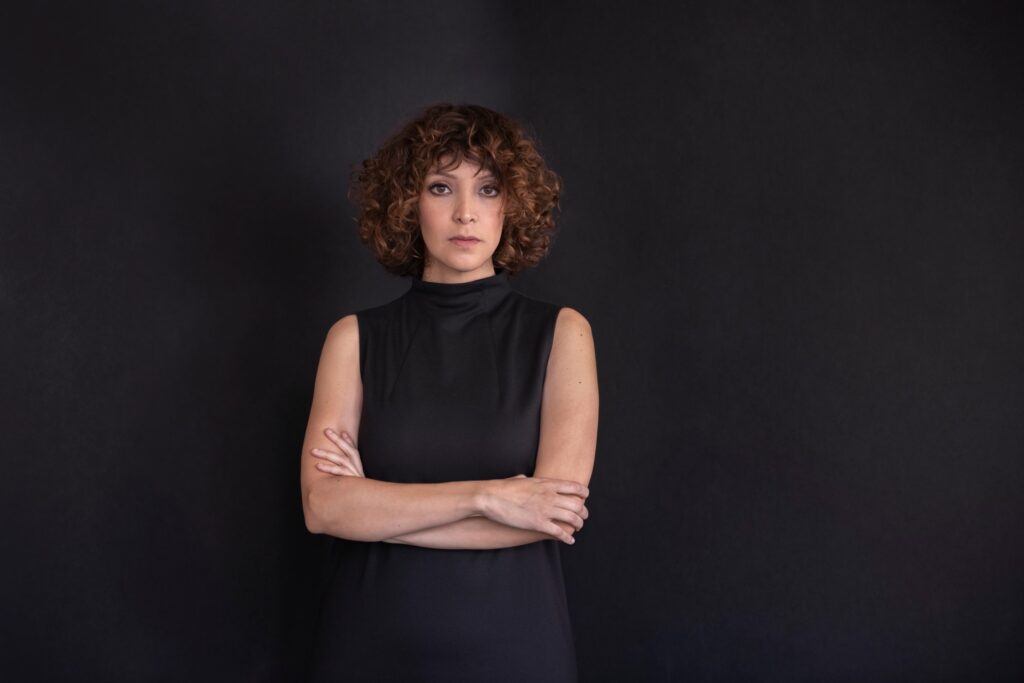“You go into PBS and one of the cool things about it is that it’s not all glitzy or anything,” Dunn tells me. “The doors are old hospital doors. There’s one particular dude whose name is Peter Merrett and he’s responsible for making a lot of the initial studios and sourcing all the stuff. There are great photos of him leading a building team and they’re on air while the studio is being built. So when the announcers speak, they’re doing the ’10, 9…’ and the jackhammers would start while the music played. The doors still say bed three hospital somewhere; I really like that. I find it charming. You know the money saved in the nooks has gone somewhere better into our production or equipment.”
Dunn has been presenting on PBS for about six years – having only recently returned from an extended break – but you might also know her as one third of the vocal trio in Harmony. The band’s current tour and a live set the night before on fellow community radio station Triple Rseem to be taking some toll on her. Chill-out time is so often pushed to the bottom of most people’s list but it seems especially apparent for Dunn who, aside from band duties, produces and hosts her own radio show.
“I took 18 months off because it’s so stressful; it’s so much work,” Dunn stresses. “It’s sometimes hard being part of something like PBS because there’s a self-imposed pressure. You want to present something that’s really fucking cool! You want to do it a service especially with an institution like PBS which has a certain amount of credibility and respect. You don’t want to do something that’s not your 100 per cent best.”
As well as playing in Harmony and running the radio show, Dunn also finds time to hold down a day job teaching English to newly arrived immigrants and refugees. Music is known to have the ability of jumping the cultural gap, giving people a way of connecting with each other and this is something she has also found in her classes.
“I took a refugee class to SYN and we had a show for a term which was hilarious and awesome,” Dunn says with a smile. “It just reinforced how valuable media is for empowering people. Music is a cultural thing specific to people and you get them to share their favourite song and it’s so great.
“Sometimes it’s disappointing with kids still just liking Justin Bieber and One Direction and that can’t be helped. Unless they’re particularly [religious] it’s amazing that every kid no matter what economic status will have a USB or something full of tracks that they would be happy to share.”
If you’ve ever listened to Mixing Up The Medicine then you’ll know in her two-hour slot Dunn packs in a whole variety of genres that seem entirely disconnected. However, there is method to her musical menagerie.
“Sometimes I think it’s a blessing and a curse having a mixed genre show. It’s open season but I generally pick up a thread of what’s inspiring me at the time,” Dunn explains. “It’s funny how certain things strike a chord and you realise, ‘Holy shit this track from 1940 goes perfectly with this lick someone was playing at the Tote last week.’”
All the hours of work done by the announcers is without any monetary incentive but simply the urge to share with audiences their vast knowledge and love of music. As an option away from pop radio and the idea that artists with the biggest pockets get the most airtime, community radio is incredibly important to non-commercial bands and audiences alike.
“It’s just so good and so rare,” Dunn enthuses. “You say things when you’re younger and you don’t really realise how true they are. You say it’s good to have community radio and it’s cool to have equity of the airwaves but I’m really realising the weight of that and it’s so special.
“It’s so rare to have something not staked in economic terms. It’s pretty amazing how there’s a different kind of currency which is music knowledge and this cultural thing people are contributing to. Especially when you get into the political debate about the meaning of voices being owned and radio being wrapped in advertising, ownership and agenda setting; it’s just not like that at all in community radio.
“Commercial radio is just agenda setting and for me it always seemed self-fulfilling. People pay money and have a lot of money and that’s why they get access to commercial media whereas if you get played on community radio it’s because somebody likes you and that’s the only reason.”
BY RHYS MCRAE







